'When You Go' - A Therapeutic Parenting Story
Write your awesome label here.
-
Length: 25 minutes

Course Overview
Saying goodbye is never easy, especially for children. Whether a foster sibling is being adopted, returning to birth family, or moving to a new home, those left behind often experience a quiet kind of grief that can be hard to explain.
When You Go is a therapeutic story designed to help children of all ages process those big feelings in a gentle, accessible way. It's brought to you as an Interactive Video. You'll have the option to play the story and then play it again with director's commentary. We recommend you do both.
This course explores how to use When You Go with children aged 4 to 18 as a tool for emotional support during transitions. You’ll gain insight into the emotional impact of sibling goodbyes, learn how to talk about the story in a trauma-informed way, and explore practical strategies for helping children express their thoughts and feelings safely.
Whether you're a foster carer, adoptive parent, birth parent, or kinship carer, this course will help you sit beside your child in their sadness, and show them that love doesn’t end when someone goes. It just finds a new place to live.
When You Go is a therapeutic story designed to help children of all ages process those big feelings in a gentle, accessible way. It's brought to you as an Interactive Video. You'll have the option to play the story and then play it again with director's commentary. We recommend you do both.
This course explores how to use When You Go with children aged 4 to 18 as a tool for emotional support during transitions. You’ll gain insight into the emotional impact of sibling goodbyes, learn how to talk about the story in a trauma-informed way, and explore practical strategies for helping children express their thoughts and feelings safely.
Whether you're a foster carer, adoptive parent, birth parent, or kinship carer, this course will help you sit beside your child in their sadness, and show them that love doesn’t end when someone goes. It just finds a new place to live.
Or choose one of our paid plans and get access to all our courses:
Our members love this
This was a beautiful story, that could be applied to so many different situations that children and their families face when they get to know someone and then they have to leave their lives.

maria
This was a very moving story. I feel it could be used in several situations.

Deborah
I am an adopter and have been a foster carer myself and now work with foster carers. "When you go" brought back all the emotions.
This will be so useful for any child (and adult) who is saying goodbye to someone who has been part of their life.
This will be so useful for any child (and adult) who is saying goodbye to someone who has been part of their life.

Margaret
Certification Included
If you're a foster carer or other professional working with children, this certificate is a record of your Continuous Professional Development (CPD).
CPD Minutes: 25
CPD Minutes: 25
Empty space, drag to resize
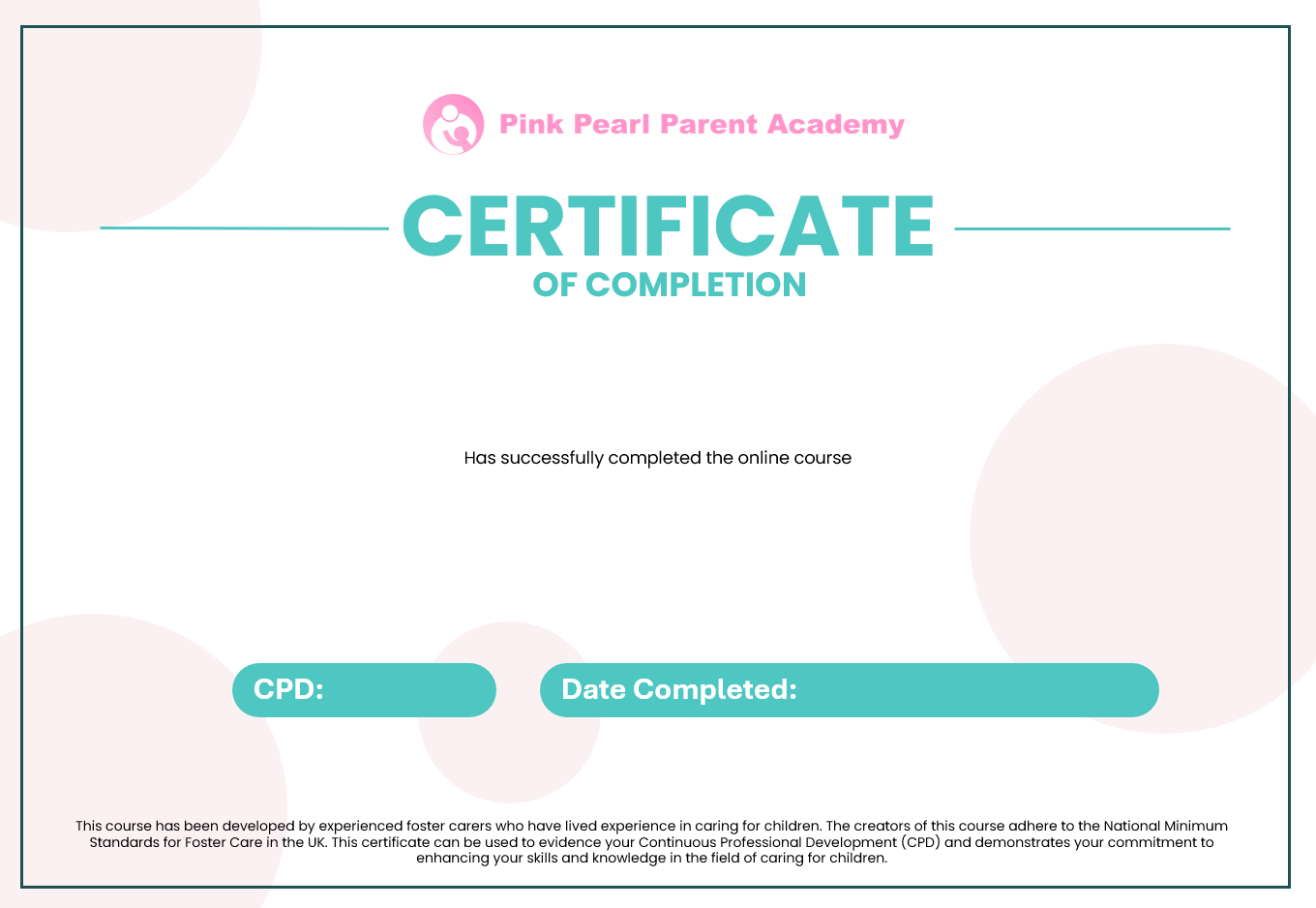
How This Course Meets the UK's National Minimum Standards (NMS) for Fostering Services
If you're a foster carer needing to demonstrate how you're meeting the NMS for Fostering Services, download the reflection form for this course.
How This Course Supports the UK's Training, Support & Development Standards (TSD) for Foster Care
If you're a foster carer needing to demonstrate how you're meeting the TSDs, download the reflection form for this course, complete it and send it to your agency.
What's in the course?
Policies
Awards & Recognition

In 2025 we were recognised by Synthesia for using AI to support foster carers and create positive social change. This award belongs to every carer who has helped build our courses.
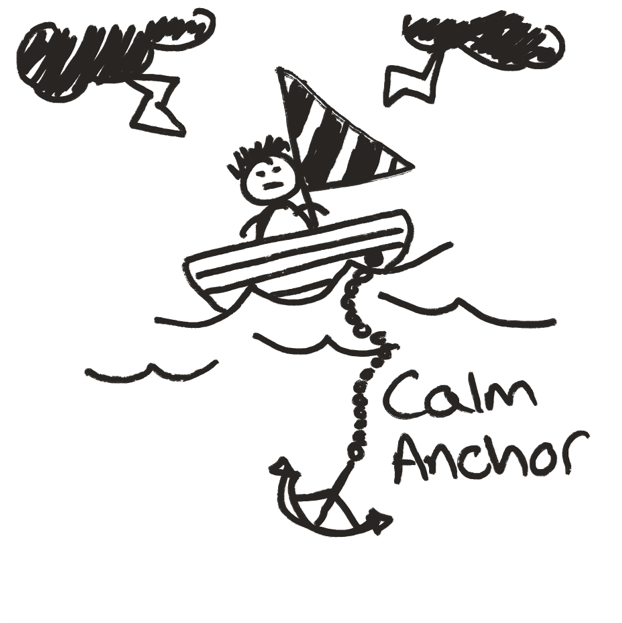
What this pearl is all about
When children tip into full-blown distress – red-faced, fists clenched, or wailing – something important is happening inside their brains. Especially if there’s trauma in the mix. The rational part goes offline and the survival system takes over. Fight, flight… sometimes both at once. And in that state, calming down on their own is almost impossible.
That’s where you come in. By staying steady – calm body, calm voice – you become the anchor. It’s not glamorous, but it’s powerful. Your calm nervous system helps to steady theirs. Psychologists call it co-regulation. I call it being the anchor in their storm.
The tricky bit, of course, is regulating yourself first. Because their anger can be contagious. It’s very easy to catch it, to snap back. But if you can keep your cool – soften your tone, ground yourself – you transmit calm instead of panic.
And when you do that, you’re saying something profound without words: even at your worst, you’re still safe with me. Over time, those storms lose some of their terror. The child begins to believe it. They borrow your calm again and again, until eventually they start to grow some of their own.
What you could say in the moment
“I can see you’re feeling a really big storm inside right now. It’s okay – I’m right here with you, and you’re safe. Take some deep breaths with me. We will get through this together.”
(Said softly, perhaps while offering a reassuring hand on the shoulder if welcomed, conveying that you are not angry and will stay by the child’s side until the emotional waves settle.)
(Said softly, perhaps while offering a reassuring hand on the shoulder if welcomed, conveying that you are not angry and will stay by the child’s side until the emotional waves settle.)
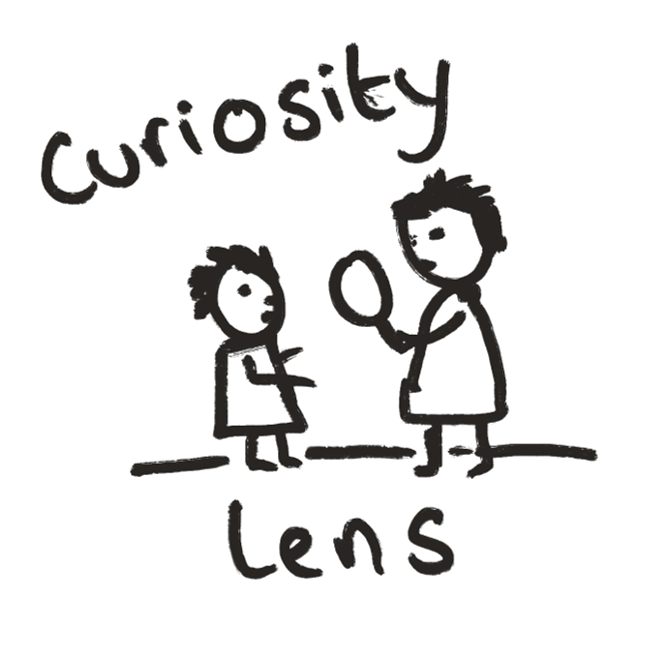
What this pearl is all about
Children in foster care don’t usually lie in the way adults think of lying – not with the cold calculation of a fraudster in a Netflix documentary. More often it’s a kind of survival tactic, almost automatic. Trauma specialists even talk about it as a “fourth F.” You’ve heard of fight, flight, freeze… well, lying becomes another option. Not to get one over on you, but to dodge the sting of shame, or the dread of being punished, or simply the awful feeling of being powerless.
That’s where the Curiosity Lens comes in. Imagine putting on a pair of invisible glasses or holding up a magnifying glass. Instead of seeing the fib at face value, you start to see what’s underneath it – the fear of rejection, the nervous energy, the shame the child doesn’t know how to name. With PACE in mind – curiosity and acceptance especially – you suspend the moral outrage, the urge to shout “just tell me the truth,” and you lean in gently instead.
It’s not about catching them out. It’s about keeping the conversation alive. As one parenting guide wisely put it: stay exploratory, keep wondering aloud. If you shame them, they’ll close the door. If you stay curious, they might just leave it ajar.
And when you respond with genuine interest – “I wonder what made it hard to tell me…” – you send a message that’s bigger than any single lie: I’m not here to trap you, or humiliate you. I’m here to understand you. That, over time, is how trust grows. They learn you’ll meet their honesty with compassion, not punishment. And that changes everything.
What you could say in the moment
“Hmm, that’s an interesting story you’ve told me. I wonder if maybe it feels safer to say that than what really happened? If you’re worried about getting in trouble, you don’t have to be – you are safe with me. Whatever happened, we can sort it out together. Can you help me understand what’s going on?”
(This phrasing invites the child to explain, without outright accusing them of lying. It uses "I wonder" instead of "You’re lying", signalling curiosity. You might even playfully put on “magic truth glasses” with your fingers, if age-appropriate, to lighten the moment and show the child they’re not angry.)
(This phrasing invites the child to explain, without outright accusing them of lying. It uses "I wonder" instead of "You’re lying", signalling curiosity. You might even playfully put on “magic truth glasses” with your fingers, if age-appropriate, to lighten the moment and show the child they’re not angry.)
Empty space, drag to resize
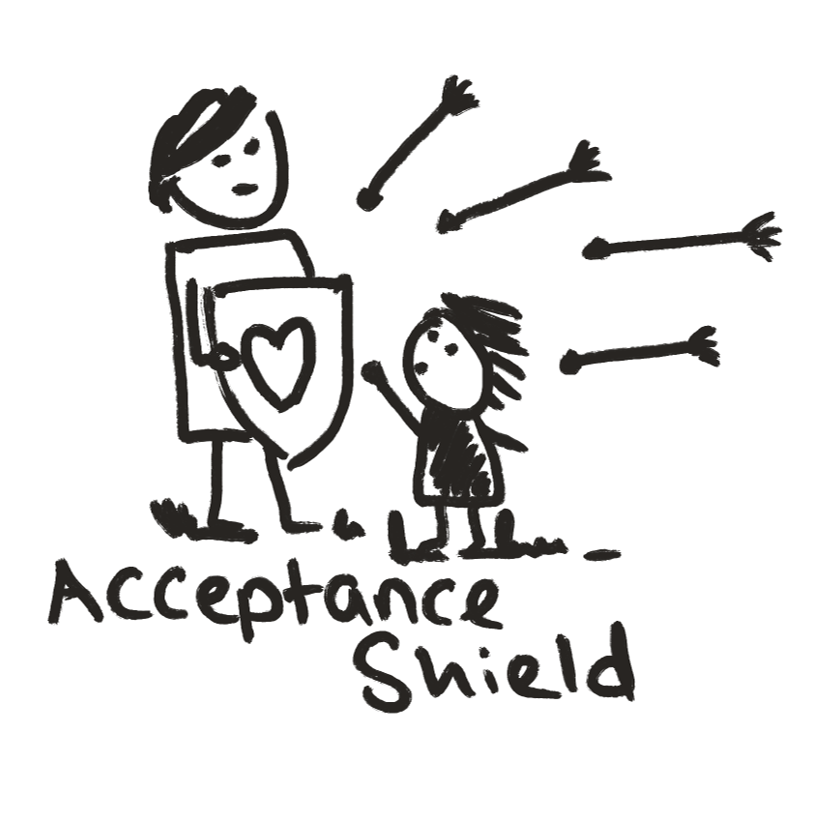
What this pearl is all about
Many children in care carry a kind of hidden script in their heads. It says: I am bad. It’s my fault. They don’t usually say it out loud, but it’s there, humming away. It comes from years of early hurt, of being rejected again and again. Some even learn that if they show real feelings – sadness, anger, longing – it might lead to punishment, or worse, abandonment. So they tuck those feelings away, and the shame festers.
This is where the Acceptance Shield comes in. It’s less superhero cape, more everyday armour. You hold it up, deliberately and consistently, to protect the child from those shame-arrows. It means making a very clear distinction: I don’t always like your behaviour, but I always accept you.
In PACE terms, it’s acceptance and empathy working in tandem. You meet the child’s feelings as they are, even the messy ones. You empathise with the shame they’re drowning in. And practically, it means tempering your own response. No harsh telling-off. No thunderous disappointment. Instead: “You’re not a bad kid. I get why this happened. And I still care about you.”
Because here’s the thing: children watch closely for whether their inner world is safe with you. If you counter their self-criticism – “I’m stupid, I’m bad” – with calm, believable truths – “You’re good, you’re worthy” – you’re teaching them a new script. One where they’re not discarded for messing up. One where they’re covered.
And when you hold that shield day after day, the child starts to believe it. Their sense of self stitches back together. They start to grow resilience against shame and rejection. And in that, the bond between you becomes their secure base – something solid, at last, in a life that’s often felt shaky.
What you could say in the moment
“I know you feel really bad about this. It’s okay – we all make mistakes, but I want you to hear this: I’m not angry and I’m not leaving. I love you no matter what. Nothing will change that. Let’s figure out how to make it right together when you’re ready.”
(This script explicitly assures the child of your enduring acceptance. Phrases like “no matter what” and “nothing will change that” directly address fear of rejection. You might literally open your arms like a shield or put an arm around the child if appropriate, to physically reinforce the feeling of protection and safety.)
(This script explicitly assures the child of your enduring acceptance. Phrases like “no matter what” and “nothing will change that” directly address fear of rejection. You might literally open your arms like a shield or put an arm around the child if appropriate, to physically reinforce the feeling of protection and safety.)
Empty space, drag to resize
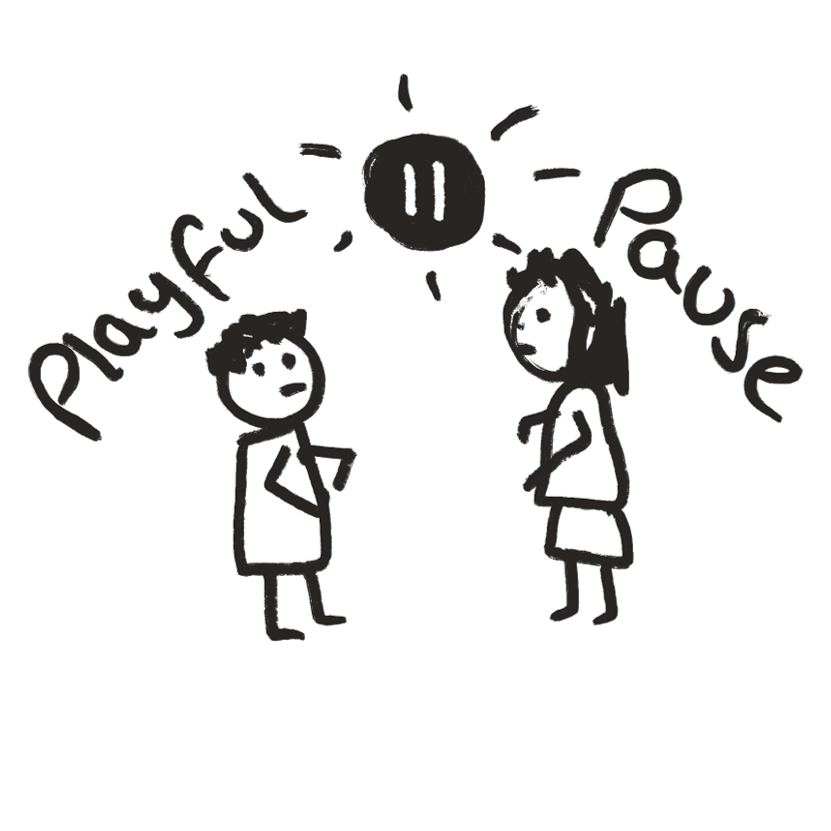
What this pearl is all about
Defiance in children can feel like a brick wall. They cross their arms, scowl, and say “No!” with the kind of finality usually reserved for magistrates. And you feel that surge of frustration rising – the urge to push back harder. But there’s another option.
The Playful Pause is about puncturing that tense balloon with a bit of silliness. A ridiculous face. A pretend dragon lurking in the room. A mock-serious “emergency” about socks refusing to cooperate. It sounds daft, and in a way it is. But daftness is often what works.
The magic of playfulness is that it pauses the power struggle. It shifts the dynamic from “me against you” to “me with you.” For a younger child, it might be full-on theatrics. For a teenager, maybe a raised eyebrow and a wry, self-deprecating joke. Either way, it says: I’m not your enemy. We can reset this together.
It doesn’t mean ignoring the behaviour. It just means you’re smart enough to know that humour can sneak past defences that sternness never will. And once you’ve both laughed, even a little, the wall crumbles. Suddenly there’s room to carry on. Together.
What you could say in the moment
In a mock-serious narrator voice: “Oh no... the Defiance Dragon has entered the room! It’s making us both all grumpy. Quick, I have an idea – I’ll make a funny face to scare it off… 😜 See, the dragon is laughing! Can you give it a try? [Child pulls a face] Hooray, we scared it away together!” (Both laugh, tension breaks) “Alright, shall we give (the task) another go now?”
In this playful script, you create a tiny imaginative game (“Defiance Dragon”) to externalise the child’s defiance as something we can team up against playfully. The exact script can vary widely by age (for a teenager, humour might be more understated, like you suddenly doing a goofy dance and saying “Ugh, what a morning – shall we hit reset and start over?” with a grin). The essence is to surprise the child out of the stuck position with levity. Your willingness to be a bit silly shows the child it’s safe to drop their guard. Once the child smiles or giggles, even briefly, the emotional climate shifts – we (you and the child) are connected again, and the task or issue can often be revisited with less resistance.
In this playful script, you create a tiny imaginative game (“Defiance Dragon”) to externalise the child’s defiance as something we can team up against playfully. The exact script can vary widely by age (for a teenager, humour might be more understated, like you suddenly doing a goofy dance and saying “Ugh, what a morning – shall we hit reset and start over?” with a grin). The essence is to surprise the child out of the stuck position with levity. Your willingness to be a bit silly shows the child it’s safe to drop their guard. Once the child smiles or giggles, even briefly, the emotional climate shifts – we (you and the child) are connected again, and the task or issue can often be revisited with less resistance.
Empty space, drag to resize
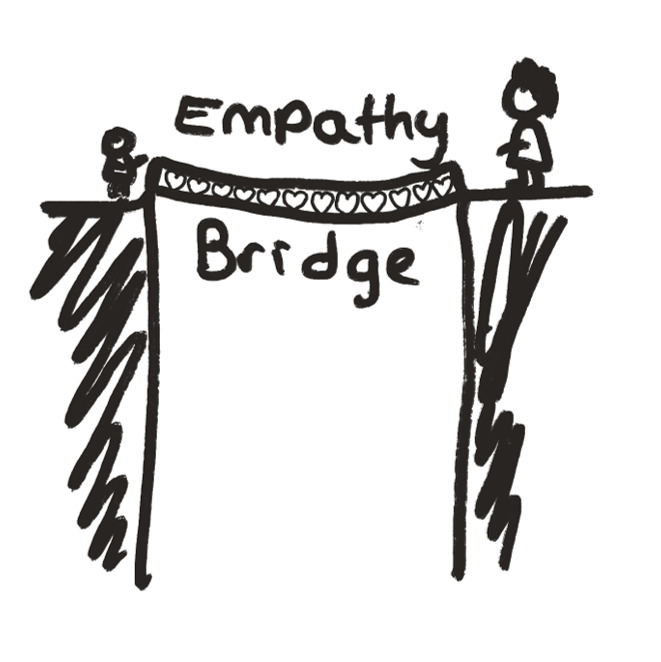
What this pearl is all about
When a child withdraws – shuts the bedroom door, curls up silent on the bed – it’s tempting to take it personally. To knock loudly, or to storm off yourself. But here’s the truth: often what’s happening is less about you and more about the child drowning in feelings they can’t quite put words to. Shame, sadness, fear.
The Empathy Bridge is about reaching across that gap. Not forcing them to talk, not demanding eye contact, but sending a quiet signal: I see you. I understand. And I’m here. Maybe it’s a few calm words through the door. Maybe it’s leaving a note or a favourite snack outside. Maybe it’s just sitting nearby, available.
The visual is a bridge of hearts or hands. You stand on your side, they on theirs. And you extend something across – empathy – so when they’re ready, they can walk back over. The bridge is patient. It doesn’t collapse if they don’t use it straight away.
This says to the child: Even if you push me away, I won’t give up on you. And in time, that’s how trust is built. They learn that silence won’t scare you off. That feelings won’t break the relationship. And that you are a steady presence on the far side of the cliff, always waiting, always ready to welcome them back.
What you could say in the moment
(You speak through the door or next to the withdrawn child, calmly and kindly): “I know it’s been a really upsetting day. If I were you, I might want to hide under the covers too. Just wanted to say I understand why you feel that way, and it’s alright. I’m here whenever you feel like talking or even if you just want a hug. Take your time – I’m not going anywhere.”
(In this script, you're naming and normalising the child’s likely feelings, showing empathy: “I’d feel the same if I were in your shoes.” There’s also an explicit assurance of presence: “I’m here… I’m not going anywhere,” which is crucial for a child worried about being given up on. The tone is gentle, not demanding a response. You might sit quietly nearby, or leave a soft toy or drawing materials as an invitation. The child then knows the bridge is there whenever they are ready to cross back into interaction. Even if the child doesn’t respond immediately, such messages sink in and over time the child will trust that the carer truly cares and empathises with them.)
(In this script, you're naming and normalising the child’s likely feelings, showing empathy: “I’d feel the same if I were in your shoes.” There’s also an explicit assurance of presence: “I’m here… I’m not going anywhere,” which is crucial for a child worried about being given up on. The tone is gentle, not demanding a response. You might sit quietly nearby, or leave a soft toy or drawing materials as an invitation. The child then knows the bridge is there whenever they are ready to cross back into interaction. Even if the child doesn’t respond immediately, such messages sink in and over time the child will trust that the carer truly cares and empathises with them.)
Empty space, drag to resize
Get started

